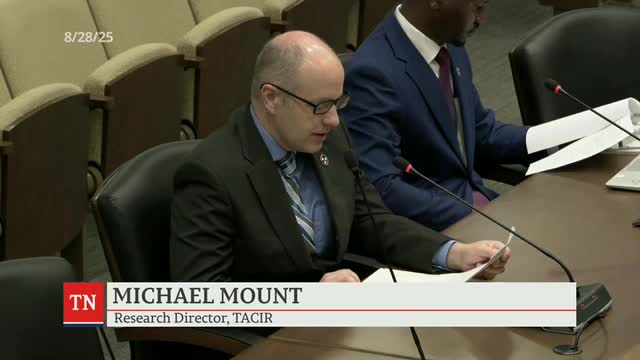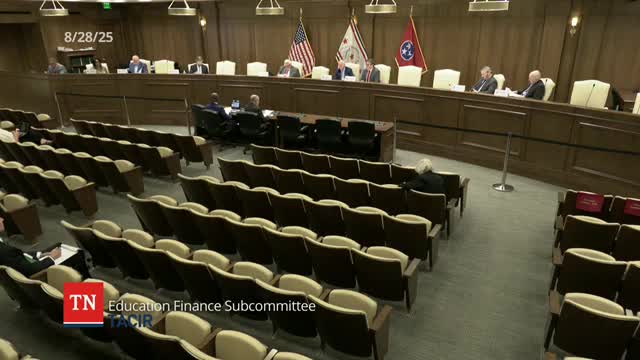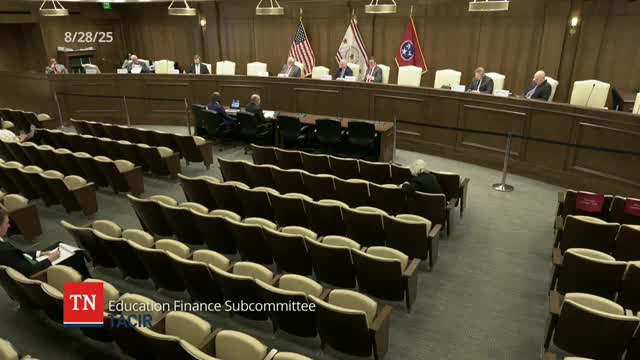Article not found
This article is no longer available. But don't worry—we've gathered other articles that discuss the same topic.

TACIR subcommittee: virtual school counts distort county fiscal capacity; staff recommends reporting student residence

TACIR: large tourism sales growth can raise county fiscal capacity and reduce state education aid share

